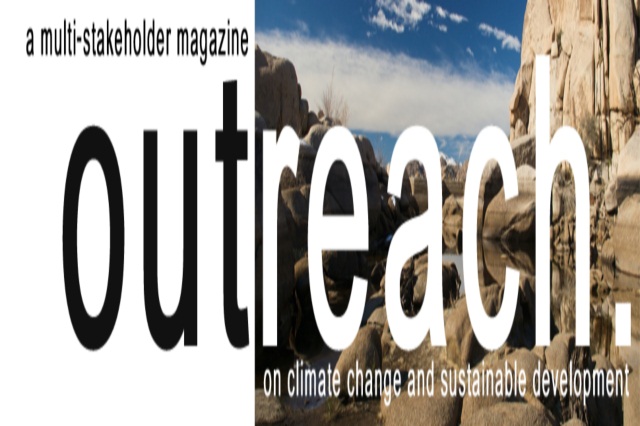"By facilitating the transition to a low-carbon economy, businesses provide a remedy for future generations"
For centuries business has been innovating. It has thrived on new ideas and products which have transformed the lives of consumers, and seized on the opportunities provided by scientific and technological breakthroughs.
Some of this innovation led to the industrial revolution and the fossil fuel powered development model that has dominated the last century. The result, as we know, is climate change, caused by our relentless release of greenhouse gases into the atmosphere. Because of this, weather shocks occur with increasing frequency and intensity, hitting the poorest and most vulnerable the hardest. As Typhoon Haiyan has shown, the very people who have done least to cause the crisis of climate change are the most severely impacted. Their rights to food, health, shelter, and even life, are undermined. This is the injustice of climate change.
As actors in the fossil fuel economy which has contributed to this injustice, it is imperative that businesses realise their responsibility to transform how they operate, and encourage others, including world leaders, to do the same.
Valuable progress has been made over recent years in acknowledging that all businesses have their own responsibility to respect human rights. The work of Professor John Ruggie, Special Representative of the United Nations Secretary-General on business and human rights, has established a consensus between governments that business must play a role in providing effective remedies for human rights abuses, but also act to prevent future abuses from occurring. The Guiding Principles on Human Rights and Business offer the potential to integrate a climate justice dimension by addressing the human rights implications of climate change.
By facilitating the transition to a low-carbon economy, businesses provide a remedy for future generations. The scientific evidence is stark – maintaining the current ‘business-as-usual’ path will bring us to a four degrees Celcius warmer world, a world where grandchildren and great-grandchildren face climate impacts of unimaginable intensity.
But the argument against such a transition has been a belief that such a move would run counter to the economic realities of business. Nothing could be further from the truth. The opportunities emanating from a low-carbon economy have huge potential – from the surge in employment it triggers in renewable industries, to the increased consumer confidence in a brand and products that are produced in a truly ethical way.
The Mary Robinson Foundation – Climate Justice believes the key drivers to enable a global deal are ‘we can’ and ‘we must’. ‘We can’ highlights the opportunities that a low-carbon future presents, and outlines how it can be achieved. Business can champion the ‘we can’ by signalling to political leaders that the steps needed to keep warming to less than two degrees Celsius are feasible, affordable and sustainable. By engaging with governments at the national and sub national level, businesses can give political leaders the confidence to act on climate change with real urgency and ambition – two elements which are essential for a truly equitable climate agreement.
‘We must’ emphasises the moral imperative we all have to achieve justice for future generations. Failing to act now will leave devastating consequences for the people who follow us. The choices businesses make now on their fossil-fuel use will determine the options that will be available to generations to come.
Business can also use a climate justice narrative, placing people at the centre, when discussing climate change and its impact on human rights. The Foundation, together with the World Resources Institute, aims to advance this narrative through the Climate Justice Dialogue.
Recently the Dialogue’s High Level Advisory Committee – comprising of former Heads of State, leaders from business, trade unions, civil society and academia – published a Declaration on Climate Justice, which sets out a number of priority pathways to achieving climate justice. Among them are:
- A new way to grow: Adequately acting to deal with the crisis of climate change means a transformation of our economic system. The majority of fossil fuel reserves must be left in the ground for this to be achieved. Both business and policy makers have roles in making this happen – from providing policy incentives to go green to designing and scaling up alternatives.
- Investing in the future: A new investment model is required to deal with the risks posed by climate change both now and in the future. Short-term financial reporting is no longer enough; a longer term overview of business sustainability takes into account a realisation of the threats posed by climate change and a commitment to act. By avoiding investment in high-carbon assets that become obsolete, we can instead invest in sustainable and climate compatible alternatives.
These actions are essential for the future of our planet – and because the challenges they raise are significant, the need for innovation from businesses is greater than ever before. It is time for business to lead the way, to demand policy certainty from the international community and to let governments know they are supported in actions to tackle climate change before it is too late.
Related Links
Foundation’s Activities at COP19


